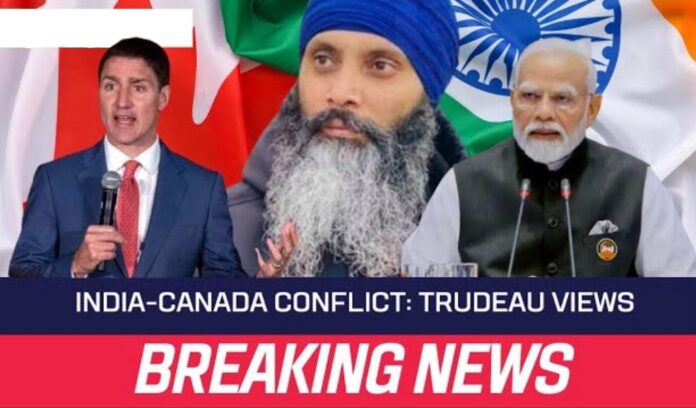In a high-level diplomatic meeting, US Secretary of State Antony Blinken raised the sensitive issue of a Canadian investigation into the murder of a Sikh separatist with India’s External Affairs Minister Subrahmanyam Jaishankar. The murder case has strained relations between Canada and India, with Canadian Prime Minister Justin Trudeau alleging Indian involvement in the killing. India has vehemently denied these allegations, resulting in diplomatic tensions that culminated in the expulsion of a diplomat from each nation. During their meeting, Blinken pressed the Indian government to cooperate with Canada’s ongoing investigation into the matter, although the official State Department statement did not mention this particular issue.
The issue at the center of this diplomatic discussion revolves around the murder of Hardeep Singh Nijjar, a Sikh separatist, in the Canadian province of British Columbia in June. While Nijjar held Canadian citizenship, India had designated him as a “terrorist.” He was a vocal advocate for the establishment of Khalistan, an independent homeland for Sikhs carved out of India. Prime Minister Trudeau publicly suggested that Indian government agents might be linked to Nijjar’s murder, a claim that India has categorically dismissed as absurd. This exchange of accusations led to a diplomatic standoff, with both nations expelling diplomats in a retaliatory move.
During Blinken and Jaishankar’s meeting in Washington, Blinken raised the Canadian matter and called upon the Indian government to cooperate fully with Canada’s ongoing investigation. However, the official statement released by the US State Department made no reference to this issue, leaving room for speculation on the extent of discussions surrounding the murder case.
Trudeau, speaking on the matter earlier this month, asserted that Canada had strong suspicions of Indian government involvement in Nijjar’s murder. This assertion, made in Canada’s parliament, marked a significant escalation of tensions between the two nations. India’s response has been unwavering in its denial of any involvement in the murder and its commitment to dismissing these allegations.
While Canada has taken a proactive stance on this issue, traditional allies of Canada, including the United States, have maintained a cautious approach. This caution could be attributed, in part, to the geopolitical considerations of major players viewing India as a counterbalance to China’s growing influence in the region.
The meeting between Blinken and Jaishankar in Washington provided an opportunity to address this contentious matter. Although not explicitly confirmed, the discussion was anticipated, with Trudeau confidently asserting that “the Americans will certainly discuss this matter with the Indian government.”
The official statement released by the US State Department following the meeting offered a concise summary of the topics discussed. It highlighted India’s G20 presidency, the establishment of an India-Middle East-Europe corridor, and various subjects such as defense, space, and clean energy. Notably absent from the statement were any references to Nijjar’s murder or the broader Canada-India tensions.
Jaishankar, India’s External Affairs Minister, had previously indicated India’s willingness to consider any “specific” or “relevant” information provided by Canada regarding the murder. Trudeau, however, has yet to publicly share any evidence supporting the allegations. He did mention that he had conveyed “credible allegations” to India several weeks ago.
The gravity of the situation is underscored by the statements of Blinken and US National Security Adviser Jake Sullivan, who expressed “deep concern” about the allegations raised by Trudeau. Moreover, the US ambassador to Canada revealed that the Five Eyes intelligence alliance, consisting of the US, Canada, Australia, New Zealand, and the UK, had gathered some information related to the case, further highlighting the international implications of the murder investigation.
As the investigation into Hardeep Singh Nijjar’s murder continues, the diplomatic tensions between Canada and India remain unresolved. The role of the United States in urging cooperation underscores the complexities of international relations and the delicate balance of interests that shape diplomatic discourse.


